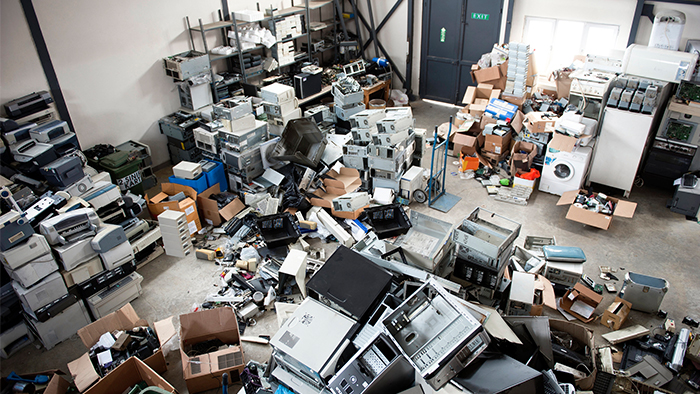Managing used consumer electronics presents a multifaceted challenge that demands cooperation from various stakeholders. In this intricate web, businesses, consumers, electronics manufacturers, repair services, and recycling firms must harmonize their efforts. With the intricate nature of recycling consumer electronics, it is crucial to remember certain fundamental aspects to ensure a sustainable and responsible approach.
- Responsible Management of Consumer Electronics Waste: The significance of ethically managing consumer electronics waste cannot be overstated. All participants in the electronics lifecycle – from production to disposal – bear a shared responsibility. Consumers often lack accessible avenues for proper disposal, leading to improper handling. Consequently, post-recycling, the existence of hazardous materials necessitates meticulous storage and disposal procedures. Addressing electronic waste (e-waste) emerges as a critical environmental and public health concern, demanding immediate attention.
- Navigating Challenges in Handling Pre-Owned Electronics: The landscape of used electronics management is fraught with challenges. Disposal convenience for consumers remains a persistent issue. The aftermath of recycling processes invariably yields toxic byproducts, demanding specialized storage and disposal protocols. The intricate amalgamation of metals, plastics, and chemicals poses a daunting sorting task. One prominent challenge involves disassembling batteries to extract toxic components, underscoring the need for precise handling. Furthermore, valuable components like capacitors and resistors warrant careful removal and storage to maximize their potential for reuse.
- Implementing Effective Recycling and Disposal Strategies: Efficiently recycling or disposing of used electronic devices requires a comprehensive approach. Establishing accessible collection points or partnering with existing disposal networks can facilitate responsible consumer electronics recycling. Collaborating with repair services to salvage reusable components can substantially reduce electronic waste. Prioritizing disassembly of batteries and segregation of toxic materials ensures safe disposal and paves the way for sustainable practices. Adopting innovative techniques, such as material recovery from discarded electronics, can promote resource conservation and minimize environmental impact.
In the intricate realm of managing pre-owned consumer electronics, it is imperative for businesses to uphold their roles responsibly. By acknowledging the significance of e-waste management, confronting challenges head-on, and implementing effective recycling methods, businesses can contribute to a more sustainable and environmentally conscious electronics ecosystem. Through collective efforts, the journey from disposal to regeneration can be transformed into a harmonious cycle that benefits the planet and its inhabitants.


